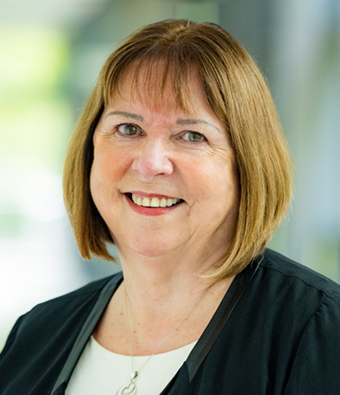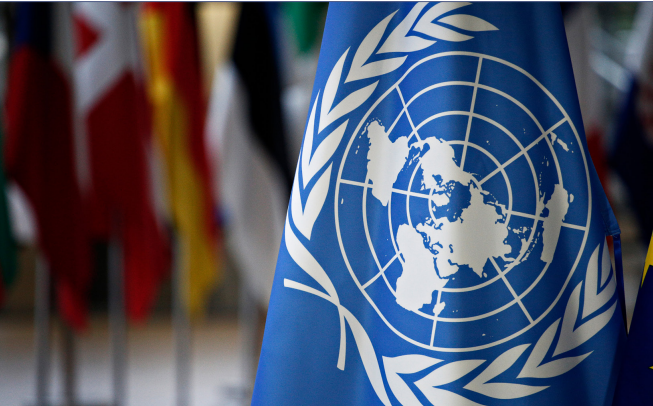FST JOURNAL
Artificial Intelligence
DOI: https://www.doi.org/10.53289/ZVMW4245
A global voice on Artificial Intelligence
Dame Wendy Hall

Dame Wendy Hall, DBE, FRS, FREng is Regius Professor of Computer Science, Associate Vice President (International Engagement) and is Director of the Web Science Institute at the University of Southampton. She became a Dame Commander of the British Empire in the 2009 UK New Year's Honours list and is a Fellow of the Royal Society, the Royal Academy of Engineering and the ACM.
Summary:
- We need to talk about what AI means for the world outside of the global powers’ technology companies.
- The UN has produced an interim report. It’s work around AI is focused on how it can benefit everybody.
- We must learn from the past and the lack of initial guard rails around the internet.
- The upcoming UN report discusses the types of organisations that could be set up to govern AI at a global level and looks at their responsible actions.
- Overall governance is about coordinating principles, convening and coordinating international cooperation and standards which will permeate throughout all of the work being done across nation states.
I started out on my AI policy journey doing a review of Artificial Intelligence for the UK Government in 2017 and last year I was appointed to the United Nations High Level Advisory Body on Artificial Intelligence (AIAB). I should stress that this has a year's commission to produce a report for the UN's Summit for the Future in September, and their global technology compact.
The UN and AI
I often sit in rooms where we're talking about how AI can benefit the UK, the US, Europe, China and the tech companies, but we don't talk about what it means for the rest of the world. The world that isn't represented here, the world that hasn't been included in these debates. The UN is very serious about how it can help govern, convene and coordinate AI at a global level, for the benefit of everybody. That’s what I like about it. I've been part of the development of the internet for a long time, and we didn't get that right with respect to governance and regulation. It works across the world but so many people are excluded from it and bad things have happened in the name of openness. We mustn't repeat this history for AI. We must learn from those lessons and move on. So that's part of my passion piece here.

The UN AIAB interim report is currently out for consultation and by the summer, we should have the final version. It will not answer all the questions but will suggest forward looking approaches that come from the bottom up (i.e.a citizen-centric approach), as well as top down. The UN Secretary General's key focus regarding the report, which will be discussed at the Summit for the Future in September, is how AI can help support the UN’s Sustainable Development Goals.
The wonderful thing about the report for me is that it is truly global. For example; I co-chair the governance working group with Professor Yi Zeng from the Chinese Academy of Sciences. AI is just like climate change in that you can't talk about it without having all the whole world engaged in the debate. The AIAB has an incredibly diverse selection of experts, including 50% women and representatives from many countries in the Global South. There are lots of different perspectives, lots of opportunities to network and I'm learning so much from them.
The writing of the interim report started the week before the UK AI Safety Summit. I was one of the very few people who actually got a ticket to that event. What I noticed when I arrived was that there were so few senior academics there from the UK or any other country for that matter, which was very strange. I didn't understand what had to be so secretive on a day that had nothing to do with secrets, and why so many experts were excluded. However many of the UN AIAB members were present all of whom had been nominated by their home countries. So it was actually a very diverse Summit in many ways and it was great to see the leading government representatives from the UK, US and China on the stage together to open the day. There were a lot of ‘behind closed doors’ conversations as you would expect, but also some discussions in working groups about more socio-technical issues which were very useful.
Anyone interested in what the UN AIAB has to say on AI should read our draft report. It includes discussion about governance, regulation and standards from many different aspects, but all interrelated. We also look at what sort of role the UN might play in global AI Governance. The report discusses the types of organisations that could be set up to govern AI at a global level, and what their responsibilities might be.
The regulation of AI will happen in nation states. Global governance is more about coordinating principles, convening and coordinating international cooperation and standards which will permeate throughout all of the work being done. This must be agreed globally in order to work.
